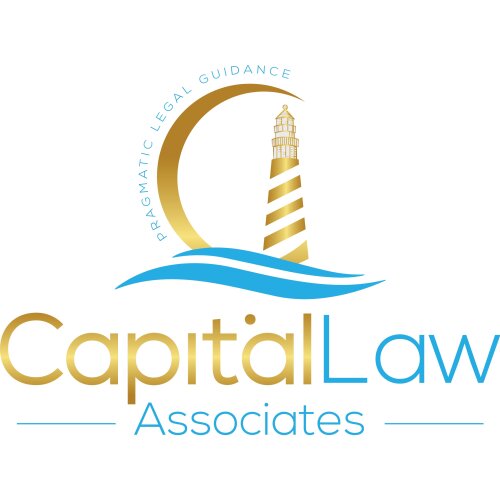Best Merger & Acquisition Lawyers in Nassau
Share your needs with us, get contacted by law firms.
Free. Takes 2 min.
List of the best lawyers in Nassau, Bahamas
About Merger & Acquisition Law in Nassau, Bahamas
Merger & Acquisition (M&A) law in Nassau, Bahamas, is a complex area of law that deals with the consolidation of companies or assets through various forms of financial transactions. This field encompasses a range of activities, including mergers, acquisitions, consolidations, tender offers, purchase of assets, and management acquisitions. In Nassau, as a leading offshore financial center, M&A activities are governed by a combination of Bahamian corporate law, securities regulations, and specific rules pertaining to cross-border transactions. The legislative framework aims to ensure that such transactions are conducted fairly, transparently, and in a manner that protects shareholder interests while promoting an efficient market.
Why You May Need a Lawyer
Legal assistance is crucial in M&A transactions due to the complexity and significance of the deals. You may need a lawyer to help you navigate through due diligence processes, regulatory compliance, drafting and reviewing transaction documents, and ensuring that the transaction adheres to local and international laws. Lawyers also assist in negotiating terms, advising on financing structures, addressing tax implications, and managing potential risks. In short, legal counsel can help maximize benefits, minimize risks, and ensure that the transaction is executed smoothly and in accordance with the law.
Local Laws Overview
The key aspects of local laws relevant to M&A in Nassau, Bahamas involve the Companies Act, the International Business Companies Act, and the Securities Industry Act, among others. These laws regulate the formation, governance, and operation of companies, as well as the execution of transactions. Specific provisions address issues such as shareholder rights, disclosure requirements, and approvals needed for M&A transactions. Further, there are certain industry-specific regulations that might affect M&A activities, particularly in the financial services sector. Compliance with anti-money laundering (AML) and counter-financing of terrorism (CFT) regulations is also essential in the Bahamian context.
Frequently Asked Questions
What is the difference between a merger and an acquisition?
A merger typically involves the combination of two companies into a single entity, while an acquisition refers to the purchase of one company by another, in which the acquiring company obtains control.
Do I need approval from Bahamian regulatory bodies for an M&A transaction?
Depending on the nature and size of the transaction, as well as the industries involved, you may require approval from relevant regulatory bodies such as the Securities Commission of The Bahamas or the Central Bank of The Bahamas.
What due diligence is necessary in an M&A transaction?
Due diligence is a comprehensive examination of the target company's business, assets, liabilities, legal standing, and financial performance. It is a critical step to assess the risks and benefits before proceeding with the transaction.
How are minority shareholders protected in M&A transactions in Nassau?
Minority shareholders are protected by laws that mandate fair treatment, disclosure of material information, and the right to an appraisal in certain types of transactions.
Are there restrictions on foreign entities acquiring Bahamian companies?
Foreign entities may face certain restrictions or requirements when acquiring Bahamian companies, particularly in regulated industries or where land ownership is involved.
How is the value of a company determined in an M&A transaction?
The value is typically determined through financial analysis, valuation models, and market comparisons, often with the assistance of financial advisors and valuation experts.
Can M&A transactions be financed in Nassau, and if so, how?
Yes, M&A transactions can be financed through various means such as bank loans, private equity, seller financing, or issuing securities.
What role does tax planning play in M&A?
Tax planning is crucial in M&A as it can significantly affect the net value and structure of the deal. It involves structuring the transaction in a manner that is tax-efficient for all parties involved.
Are employee rights and contracts affected by M&A transactions?
Employee rights and contracts may be affected by M&A transactions. It is important to review and consider terms of employment, succession in employment rights, and potential restructuring needs.
Can a merger or acquisition be reversed?
Reversing a merger or acquisition is complex, often costly, and subject to specific conditions and legal processes. It usually occurs only if there has been a material misrepresentation, regulatory issues, or significant post-deal problems.
Additional Resources
For those seeking further information on M&A in Nassau, Bahamas, resources such as the Securities Commission of The Bahamas, the Central Bank of The Bahamas, and The Bahamas International Securities Exchange (BISX) may provide valuable guidance. Additionally, consulting with experienced local law firms that specialize in corporate and M&A law can prove helpful.
Next Steps
If you need legal assistance with a merger or acquisition in Nassau, Bahamas, your next steps should include researching and contacting a reputable law firm with expertise in Bahamian M&A law. It is advisable to arrange a consultation to discuss the specifics of your situation, including the nature of the transaction, the type of entities involved, and any cross-border considerations. A skilled lawyer will guide you through the process, ensuring compliance with local laws and regulations and the successful completion of your transaction.
Lawzana helps you find the best lawyers and law firms in Nassau through a curated and pre-screened list of qualified legal professionals. Our platform offers rankings and detailed profiles of attorneys and law firms, allowing you to compare based on practice areas, including Merger & Acquisition, experience, and client feedback.
Each profile includes a description of the firm's areas of practice, client reviews, team members and partners, year of establishment, spoken languages, office locations, contact information, social media presence, and any published articles or resources. Most firms on our platform speak English and are experienced in both local and international legal matters.
Get a quote from top-rated law firms in Nassau, Bahamas — quickly, securely, and without unnecessary hassle.
Disclaimer:
The information provided on this page is for general informational purposes only and does not constitute legal advice. While we strive to ensure the accuracy and relevance of the content, legal information may change over time, and interpretations of the law can vary. You should always consult with a qualified legal professional for advice specific to your situation.
We disclaim all liability for actions taken or not taken based on the content of this page. If you believe any information is incorrect or outdated, please contact us, and we will review and update it where appropriate.

















